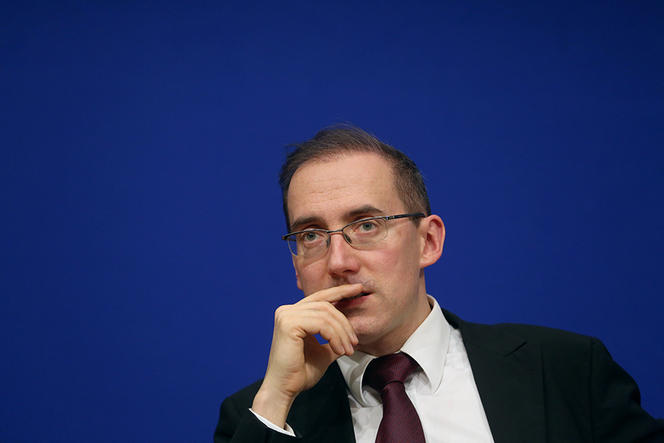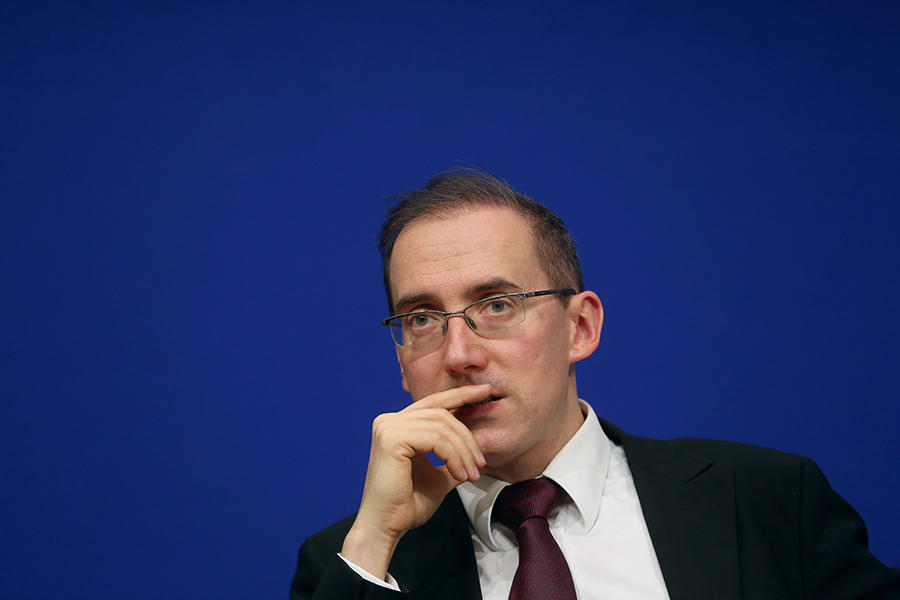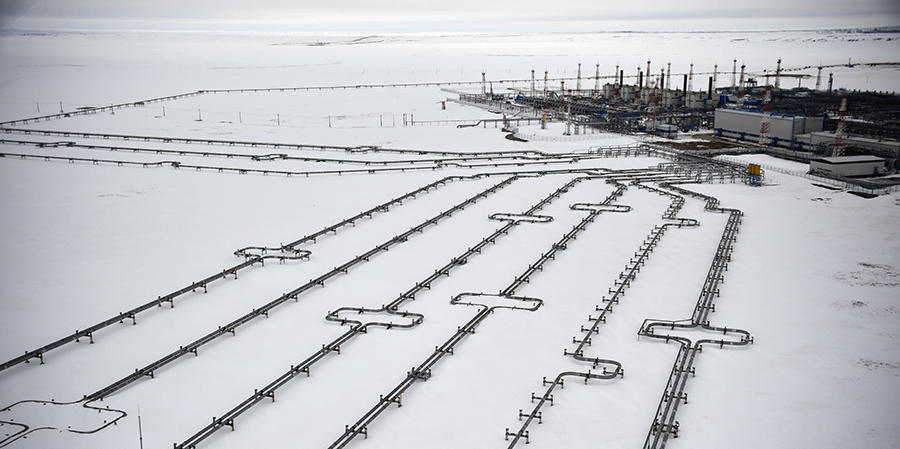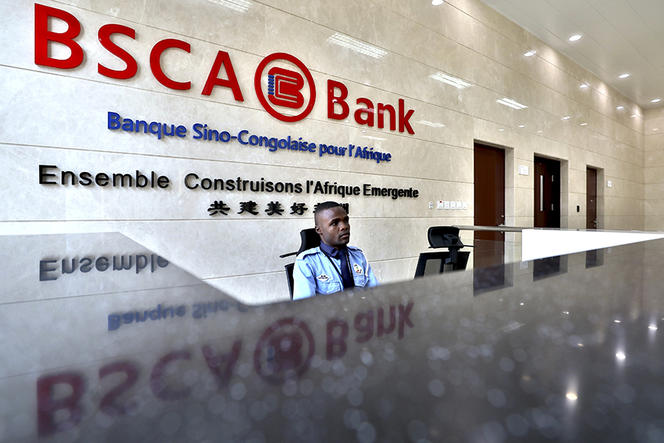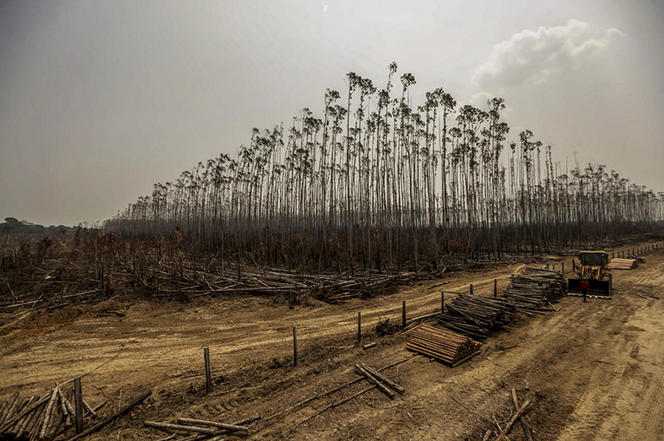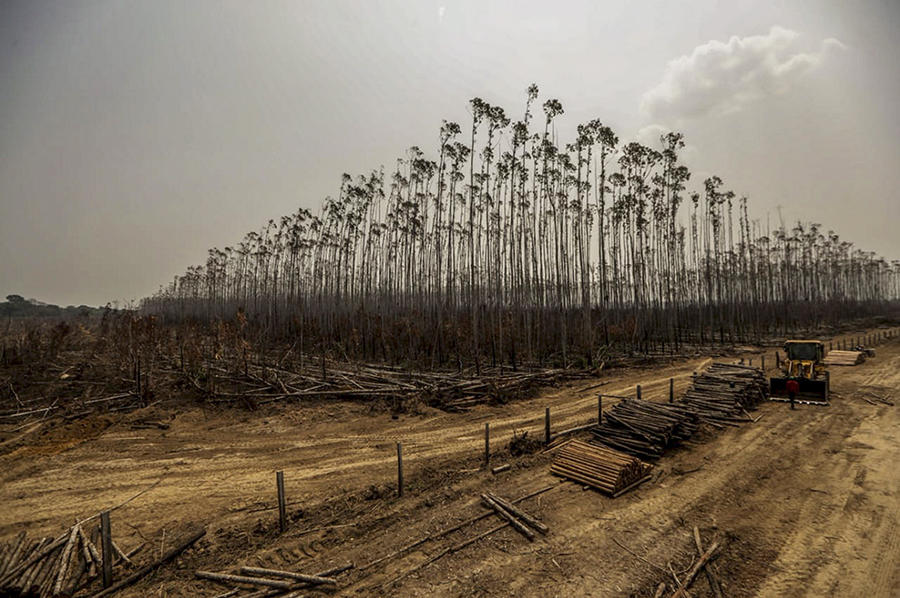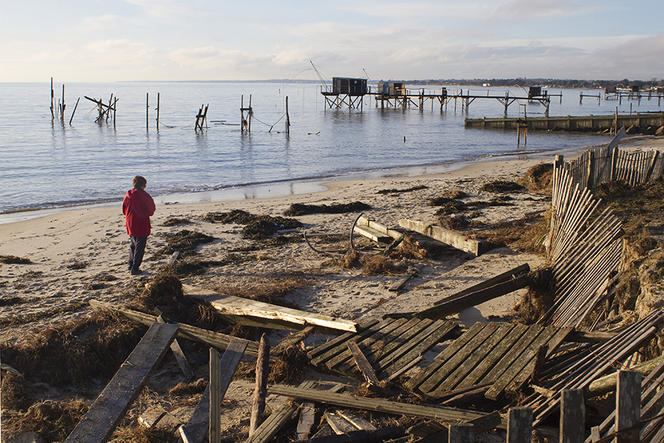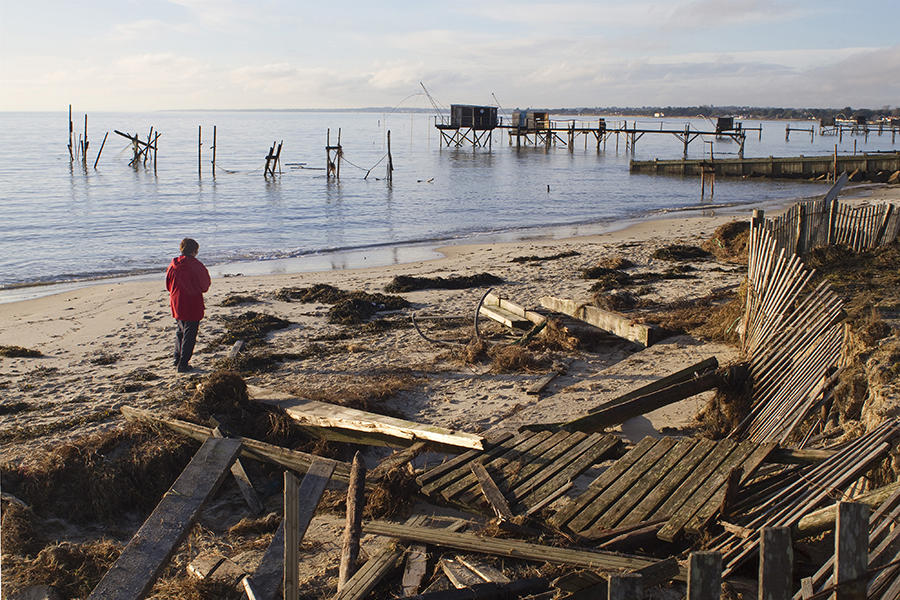You are here
Reducing inequalities to save the planet
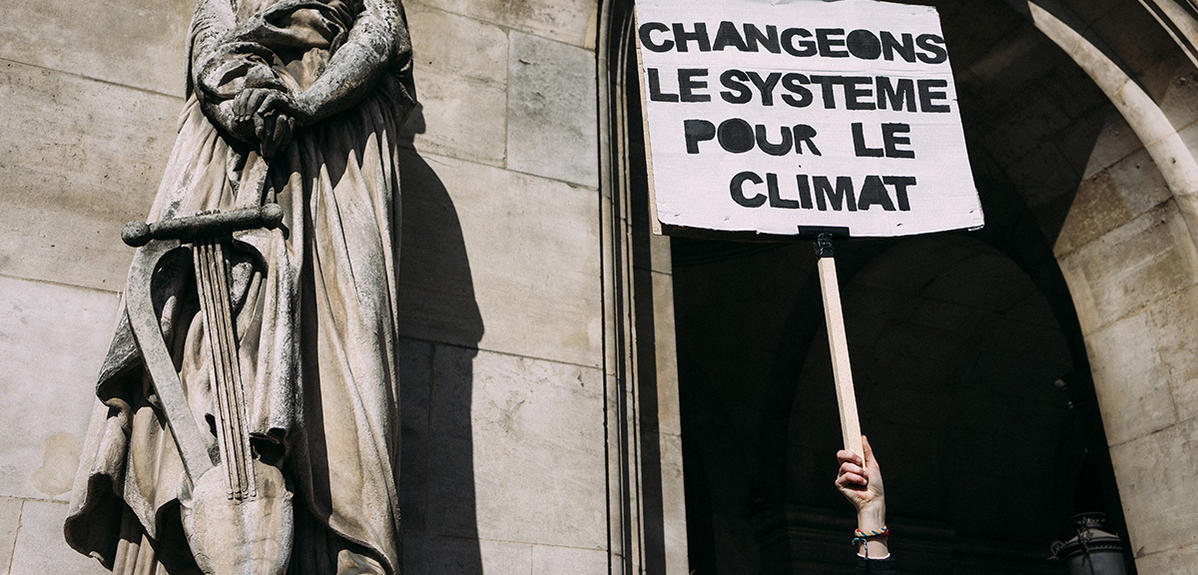
Several studies in recent years have highlighted the link between economic inequalities and environmental issues. In short, the greater the inequalities, the more waste, pollution and CO2 emissions a society produces. Do you agree there is a connection between the two?
Gaël Giraud:1 I mostly share this point of view, but I’d like to express a few reservations. It is true that atmospheric carbon dioxide emissions are a direct reflection of the economic inequalities between nations because people who enjoy the highest annual incomes are those who produce the most CO2. For example, a US citizen generates more than 15 tonnes of the gas each year on average, compared with 5 tonnes per person in France, and less than 2 tonnes in Chad. This trend can also be observed within each country where CO2 emissions rise along with income levels, even though more affluent people can afford to adopt more environmentally friendly consumption habits.
Yet no causal link should be established with regard to this correlation between inequality and pollution. Supposing the world’s income was shared among all inhabitants of the planet without changing anybody’s lifestyle and everyone on Earth received a worldwide average income, making global society perfectly egalitarian, the reduction in CO2 emissions would be negligible. The rise in releases from what were the lower income groups would offset the drop from the upper brackets. What matters is not so much the redistribution of wealth, as changing our lifestyles and convincing everyone of the necessity of being less wasteful.
According to the French consulting firm Carbone 4, adjusting individual behaviours could reduce our carbon footprint by as much as 25%, or 30% for the most frugal among us. To bring net CO2 emissions down to near zero and retain some chance of not drastically overshooting the goal of a 2°C temperature rise set by the Paris Agreement, we need to radically, collectively transform our basic infrastructure.
Isn’t it more difficult to transform lifestyles and infrastructures in less egalitarian societies?
G.G.: That is one of the main lessons of the “Yellow Vests” protests in France, which suggest there can be no energy transition without significant social compensation, if governments want to avoid facing massive unrest. Unfortunately, income inequality has widened in France in recent years, in particular due to the real estate bubble in large cities and, more generally, the urbanisation of the country where the increased economic, political, cultural and media power shifts to conurbations, to the detriment of rural areas and smaller towns. This tendency also makes access to public services even more unequal. The problem is by no means limited to France, as clearly shown in the Danish World Inequality Database (WID), the most reliable in the world, and James Galbraith’s studies on inequality, for example.
In 2015, Mark Carney, the governor of the Bank of England, warned that global warming was the greatest threat to financial stability and economic prosperity. Are we in fact trapped in a vicious circle in which the climate and the economy keep deteriorating, in turn worsening social unrest?
G.G.: The first risk that Mark Carney quite rightly identified is the physical deterioration of assets held by financial institutions as a result of global warming. Today though, the banking and financial world is more concerned about the second type of threat Carney pointed to, whereby financial losses are caused by an overly rapid energy and environmental transition. In terms of immediate financial interests, it is important not to move too quickly. Since the economic impact of global warming, including the destruction of coastlines, the collapse of biodiversity, hydric stress, soil erosion, or extreme weather events, is very difficult to quantify – and in any case is not factored into any corporate or national accounts – it is vastly underestimated. To prevent this kind of danger, we are letting the first, much more serious type of risk continue to increase.
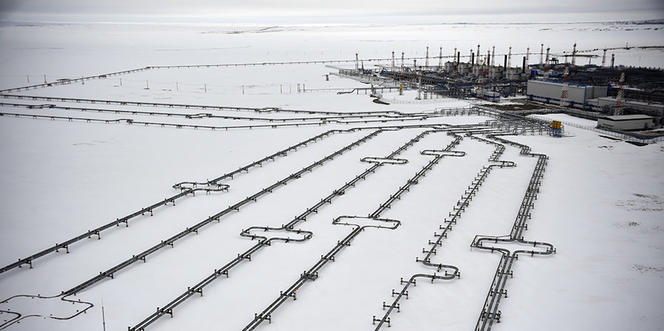
The main victims of global warming and current inaction will quite certainly be the poorest populations, whether in countries that have long been industrialised or in those that have never known an industrial revolution, as in Sub-Saharan Africa. But the economies of the North are dependent on those of the South and, should the latter happen to collapse, would quickly know the same fate. It is therefore of paramount importance to scientifically assess the impact of the first category of risk over time. This is what I am working on with the climatologists of the Institut Pierre-Simon-Laplace.2
How does this make it urgent to reform the banking system?
G.G.: Most of the large traditional banks have, in their balance sheets, a historical endowment inherited from the industrial revolution that is incompatible with the energy transition. I am currently studying the dependency of financial establishments on the fossil fuel industry. I can’t yet give a precise figure, but one thing is certain, it is considerable – and that’s normal. What is not so normal is that French banks are exacerbating this dependency by continuing to finance fossil fuels on a massive scale. According to Oxfam, for every euro allocated to the financing of renewable energies, banks still lend another seven to fossil fuel ventures. If coal and gasoline were to be made “stranded assets”, in other words if their sale was banned, many institutions, already severely weakened by the financial crisis of 2008, would fail.
A bank the size of BNP Paribas, the leader in the Eurozone with assets of nearly 2 trillion euros – a figure comparable to France’s GDP – would take the entire French economy down with it. The government would be unable to pay up to 100,000 euros to reimburse each individual investor’s lost savings, as provided by the law. No one can estimate the worldwide financial meltdown that the failure of such a megabank would trigger. The same holds true, mutatis mutandis, for most systemically important mixed financial institutions, which combine market operations with savings and lending services. France is the only country in the world with four institutions of this type.
Most Western economies therefore simply cannot rush headlong towards a carbon-free society without endangering the global financial system. This is, in my opinion, the real reason for the prevailing inaction hidden behind a veneer of media “greenwashing”, because we all depend on banks, public sector and private sector alike. We have to make a choice between them and the planet.
In this financialised economy, which relies on the excessive use of natural resources, have economic inequalities facilitated the monopolisation of those resources?
G.G.: The inequalities among countries have indeed given wealthier economies an advantage in the race for raw materials and fossil fuels. China’s new “Silk Road” is above all a way to provide the Chinese economy with resources that can’t be found inside the country. The historian Christophe Bonneuil has thoroughly documented the extent to which, for more than a century, France has also been heavily dependent on imports of material resources, and how the French colonial empire encouraged the establishment of these channels. Bonneuil goes so far as to describe our economy as “parasitic”. More generally, the so-called advanced economies would not be viable without monopolising resources. A telling example, cited by the scientific board of the French development agency, AFD, is the growing presence in Africa of a country like China, which has its eyes set on the Democratic Republic of Congo’s cobalt deposits, the largest in the world.
According to the World Bank, our economic system also has its advantages, in particular by making it possible to reduce the wealth gap between countries. Do you subscribe to this point of view?
G.G.: No one disputes the increasing inequalities within individual states. But the argument put forth by my colleagues at the World Bank, namely that the gap between countries has narrowed, is questionable. For one thing, it is based on the inversion, since the late 1990s, of a curve representing the evolution of the relative Gini coefficient, which measures the difference between the perfectly equitable apportionment of a resource and its actual distribution. The slight drop in this index over the past 20 years is due solely to 700 million Chinese rising out of poverty. Excluding China, the Gini index between countries has continued to increase for a generation. In addition, taking into consideration the disparity between extreme incomes rather than their ratio, the divide between nations is still growing, whether China is included or not.3
Isn’t a new economic and political system needed to reverse growing inequalities and CO2 emissions?
G.G.: I think the concurrent destruction of nature and social bonds that we are witnessing is the result of a political philosophy hostile to ecological transition. This philosophy, famously championed by Thomas Hobbes and John Locke, has helped enshrine the modern notion of private property as an inviolable sacred right, a status that it had never had in ancient and mediaeval Europe. We are obsessed with the idea of appropriating the world around us, which prevents the collective sharing and preservation of resources, goods and services.
In France in 1789, the sacred nature of private property was set forth in Article 2 of the Declaration of the Rights of Man and of the Citizen, and later perpetuated by the Napoleonic Code and the UN Universal Declaration of 1948. Granting private property the status that mediaeval scholasticism gave to “natural law” means running the risk that no authority will ever be able to set limits to private owners’ imaginary prerogatives. For example, according to US law today, nothing can prevent someone who finds oil in their back garden from extracting it. It is their property, and they have exclusive rights over it. Similarly, there is no legal authority that can question the sovereignty of the Brazilian State, even though it is destroying the Amazon forest.
In contrast with this “global privatisation”, you are proposing to reintroduce the concept of “commons”. Can you tell us about it?
G.G.: In my opinion, the concept of “commons”, in other words resources that are shared and managed collectively by a community, in keeping with what was done under Roman law and in the Middle Ages, seems indeed quite promising. To take one example, the effects of deep-water industrial fishing combined with the acidification and warming of the oceans is disrupting and weakening the marine food chain to such an extent that researchers at the French Agricultural Research Centre for International Development (CIRAD) have sounded the alarm. If nothing is done, there will not be a single edible fish left in the sea by 2050.
If we continue to consider the oceans as a private resource, I’m afraid we will not be able to stop this decline. We must create global institutions through which resources, the high seas in particular, are administered as commons. I am not saying that this would be easy under present-day international law, but it seems essential if we don’t want things to get worse. What gives me hope is that many communities have always had commons, and the practice is proliferating on the Internet and among collective groups dedicated to the protection of forestland, water resource management, or the Drugs for Neglected Diseases Initiative (DNDi), to name but a few.
Should the idea be limited to natural resources?
G.G.: I agree with the Hungarian economist and anthropologist Karl Polanyi who identified three main categories of assets whose privatisation breaks down social bonds, namely land, labour and money. Land, which we have already mentioned, is one of the resources supplied by non-human ecosystems. The question of labour is more complex, as shown in the remarkable works of Alain Supiot. It harks back to John Locke, who legitimised private property through labour, whereby those who work are the private owners of the product of their labour. This approach confines each and everyone of us to a solitude that is contradicted by the fact that society “expresses itself” through the product of individual labour. For example, does it make any sense to claim that the mathematician Alexandre Grothendieck is the sole owner of the theory of schemes? Relational anthropology cannot subscribe to the Lockean view and should encourage us to consider labour and its products as commons. This does not mean abolishing private property, but rather giving it the place it deserves.
As for money – the third type of essential asset according to Polanyi – its minting is reserved, in the Eurozone, to an oligopoly of private banks, since the sovereign right to issue currency has been taken away from the states. It is not certain that the privatisation of money serves the general interest, and yet this trend could be exacerbated by tech giants Google, Apple, Facebook, Amazon, and Microsoft, which are showing an interest in minting their own currency – possibly beyond the control of public bank regulation authorities. This can only further erode the sovereignty of citizens and undermine already weakened governments.
In response, somewhat in the manner of the “monetary biodiversity” that prevailed in the Middle Ages when royal privileges allowed certain towns to mint coins, many initiatives have been launched in Europe to regain local monetary sovereignty. These complementary, civic-minded regional currencies, like the Sardex in Sardinia, are concrete reinventions of the concept of commons. Money, labour and natural resources are three areas where the role of the State needs to be reassessed. Governments should create the necessary conditions for the emergence and preservation of commons in civil society, including global ones like the Amazon. Otherwise, the utopia of an entirely privatised world, shredding the fundamental bonds of solidarity in our societies, will cause such suffering that, as in the 1930s, people will end up clamouring for authoritarian, anti-democratic “solutions” to save them from the nightmare of privatisation. In my opinion, this is the root cause of the rise of right-wing populism in Europe, Brazil and India today.
- 1. CNRS senior researcher at the Centre d’Économie de la Sorbonne ( CES – CNRS / Université Panthéon-Sorbonne).
- 2. CNRS / Université de Versailles Saint-Quentin-en-Yvelines / Sorbonne Université / CEA / École Normale Supérieure / École Polytechnique / IRD / Université Paris-Est Créteil Val-de-Marne.
- 3. If the richest country in World A earns 100 and the poorest 1, the difference would be 99 and the ratio 100. And if the richest country in World B earns 200 and the poorest 2, the difference is 198 but the ratio remains unchanged. According to the relative Gini index, these two worlds have the same level of inequality, but according to the absolute Gini index, inequality in World B is twice as high as in World A.


